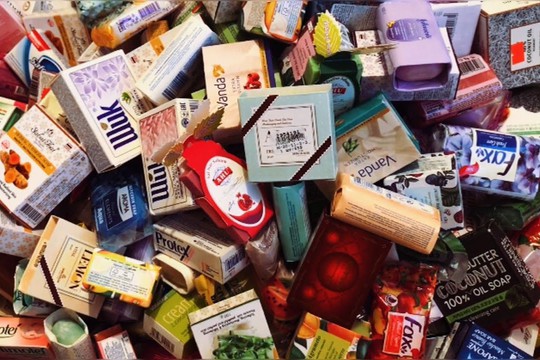Soap is too expensive a product for every French person to use.
Due to lack of money, one in two French people go without hygiene products, reveals French ‘Le Figaro’.
Faced with inflation, hygienic insecurity is exploding, warns the Dons Solidaires association. Young people are the most affected, including those who are part of the world of work.
“Hygienic insecurity intrudes into many homes.” The general delegate of Solidarity Donations, Dominique Besançon, is alarmed February 26 by the results of the association's fourth barometer, which collects donations of non-food products to redistribute them to a network of associations fighting against precariousness.
One in two French people say that the current economic context is pushing them to reduce their consumption of hygiene products due to lack of money. They were 34% in 2023.
The phenomenon, “which is taking lasting root in France”, no longer affects only the poorest French people but “a much more varied public”, points out Dominique Besançon. It is makeup that they most often give up on: 40% of women say they limit themselves on this expense item. Nearly one in five people limit their purchases of razors (compared to 11% in 2019, during the first barometer), 16% on deodorant (10% in 2019), 13% on laundry detergent (not tested in 2019) or even 12% on toothbrushes (7% in 2019).
“It’s a constant trade-off between the purchase of food, hygiene products and energy bills,” recalls Dominique Besançon. More than one in five people have already had to choose between buying food and a hygiene product.
This precariousness thus leads the French concerned to avoidance solutions: 41% of parents say they control their children's shower gel consumption, whereas only 20% were in this case five years ago. A third of French people prolong the use of single-use products – always for budgetary reasons; 23% control the consumption of toilet paper and 11% sometimes wash without soap.
Generally speaking, young people are the most affected by this hygienic insecurity. “The rates of abandonment of purchases among this public are alarming,” warns Dominique Besançon, who points out that 41% of 18-24 year olds have already had to decide between a purchase of food and hygiene products. They are students, young people far from employment, but also “young workers who have a job but who, with crises and inflation, are having difficulty making ends meet”.
In addition to the obvious health problems posed by this hygienic precariousness, we see the emergence of a “feeling of unease among the people concerned, which leads to social avoidance,” explains Dominique Besançon. To the point, for 17% of respondents, that they did not dare to go to a professional meeting.
read more in our Telegram-channel https://t.me/The_International_Affairs

 10:00 02.03.2024 •
10:00 02.03.2024 •























